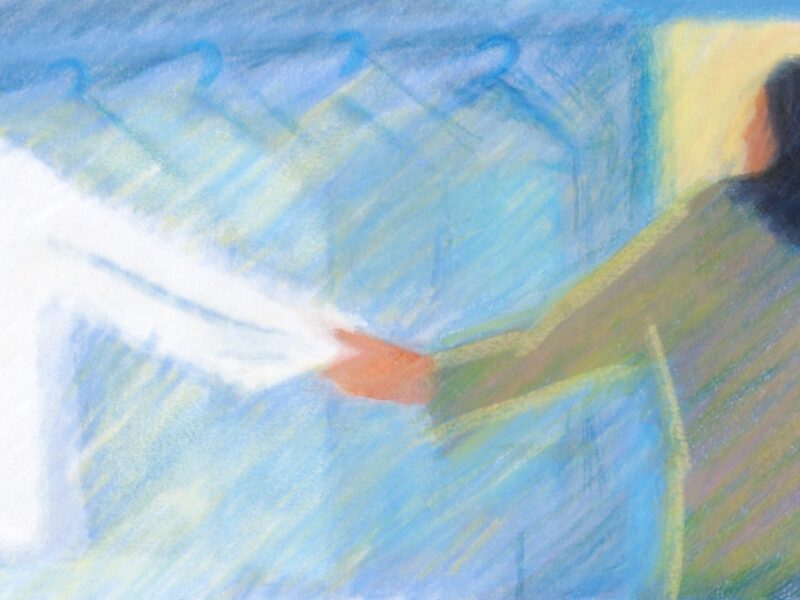Maxwell’s defense team is expected to claim her accusers have faulty memories and that they are money-grubbing whores.
When Ghislaine Maxwell was arrested by the FBI in the summer of 2020, the victims of Jeffrey Epstein rejoiced: “[I]t truly means that the justice system didn’t forget about us,” one of them, Jennifer Araoz, said at the time.
The victims were forgotten in 2008, when Epstein was granted a sweetheart non-prosecution deal without the knowledge of their attorneys. They were forgotten again a year later when Epstein got out of jail after serving just 13 months and quickly resumed his activities as a philanthropist, surrounded by the world’s most powerful people and institutions. They were forgotten yet again when Epstein was left alone and unmonitored in his prison cell, a situation which led to his death. Now, the trial of Epstein’s longtime companion and accused co-conspirator represented a chance for these women, abused as teens, to finally witness some semblance of accountability for crimes which have been downplayed or downright ignored by authorities for more than a decade.
A 59-year-old Oxford-educated former British socialite, daughter of disgraced and deceased media mogul Robert Maxwell, Ghislaine has been charged with recruiting and grooming underage girls for Epstein to sexually abuse. She is accused of participating in the abuse herself. Arrested on sex-trafficking charges in July 2019, Epstein died in his cell in the Metropolitan Correction Center of New York City on August 19, 2019; the death was officially ruled a suicide, but some people, including me, still have questions. Whatever the cause, his death was a tough break for Maxwell: She was widely expected to flip on him in exchange for leniency. Now she has absolutely no leverage, and faces up to 70 years in prison if convicted on all counts. She has pleaded not guilty to all of them.
Originally scheduled for the summer of 2021, the Maxwell trial was pushed into the fall after the prosecution filed a superseding indictment in April containing more serious charges and adding an additional victim. So, after so many delays and false starts, it’s fair to say that as Maxwell entered the federal courtroom in downtown Manhattan on November 29 wearing a cream cashmere sweater, there was plenty of pent-up anticipation about what was going to transpire. I fully expected that this story, involving obscene wealth, power and a child sex-trafficking ring, would dominate the headlines, and that the trial would contain shocking revelations. But neither of those predictions has come to pass.
Things started out on an exciting note, when Maxwell had the audacity to sketch the sketch artist who was sketching her, a visual metaphor for the defense team’s defiant DARVO (deny, attack, reverse victim and offender) strategy. Power lawyer Bobbi Sternheim came out guns blazing, stating in her opening arguments that her client was being used as a scapegoat to pay for the crimes of her dead boss: “Ever since Eve was accused of tempting Adam with the apple, women have been blamed for the bad behavior of men,” she said, ignoring the fact that there is plenty of bad behavior here to go around. Over the course of the next 10 days in court, the prosecution called about 20 witnesses—including four victims who told harrowing stories of being befriended as teens by Maxwell and Epstein, who promised mentorship and financial support, only to betray them with unwanted and traumatic sexual encounters. Then on Friday, the prosecution summoned their star witness: Annie Farmer, whose sister–also an Epstein victim–went to the FBI back in 1996 to report Epstein’s abuse. A full 25 years later, Annie, a self-possessed 42-year-old psychologist, took the stand and told jurors of a nightmarish visit to Epstein’s New Mexico ranch, where he and Maxwell molested her. “I felt sick to my stomach,” she told Assistant U.S. Attorney Lara Pomerantz.
I also felt sick to my stomach, fearing yet another miscarriage of justice when, following Farmer’s emotional testimony, the government shocked everyone—including Judge Alison Nathan—by resting its case two weeks earlier than anticipated. An early wrap-up would have been exciting if the prosecution, led by 32-year-old Assistant U.S. Attorney Maurene Comey—daughter of former FBI director James Comey—had nailed its case. By all accounts, however, it did not.

Despite the strong testimony from the victims, the government’s case was weaker than expected, their young lawyers outmatched by Maxwell’s high-priced, seasoned team and unprepared for their counterarguments, according to media reports. For example, Maxwell’s lawyers tried to undermine the claims of one victim, Jane Doe, who said that she had flown with Maxwell on Epstein’s plane, arguing that Epstein had an assistant with the same first name—even thought that particular assistant didn’t work for Epstein at the same time, or even in the same decade. The prosecution took days to provide an adequate rebuttal, underscoring its lack of nimbleness.
But it’s possible that all is not lost. Cameras and recording devices are not permitted in federal court, so all the information about the Maxwell trial is filtered through the media’s lens. Expectations are high and impressions can be distorted, particularly since it feels as though this case got overshadowed by a mountain of other equally disturbing news, ranging from the Supreme Court’s abortion decision to the steady drumbeat of information about the January 6 insurrection, and the trial of another high-profile woman, Elizabeth Holmes. Many have noted the similarities between Maxwell’s and Holmes’s defenses, in which they lay the blame for their alleged misdeeds on powerful men, as if “women simply don’t have the agency to be true criminal masterminds,” as Salon put it.
Starting on Thursday, December 16, Maxwell’s defense team gets its chance to make their client’s case, casting doubt on the victims’ recollections. Based on their questioning of the witnesses under cross-examination, it’s clear that they will continue to paint the accusers as money-grubbing whores who are being manipulated by a platoon of greedy lawyers. It’s truly a disgusting argument, but the defense must realize that Maxwell does not have any other cards to play. One promising sign: witnesses for the defense are so embarrassed at being associated with Maxwell and Epstein that they have requested to testify under pseudonyms, a highly unusual move. The request was denied, but the sheer chutzpah of putting it in writing is rich given that an attorney for the defense “accidentally” name-checked two of the anonymous victims last week.
On Friday December 10, lawyers for Maxwell said that the defense would take just four days, possibly fewer, to present its case. That’s probably because they want to wrap up before the holidays so the jury won’t be stuck in court, resentment spilling over into their deliberations. Ghislaine’s 60th birthday happens to fall on Christmas. We will soon find out if her victims will finally be remembered, or if this lifelong bottom feeder will be given the gift of impunity.



